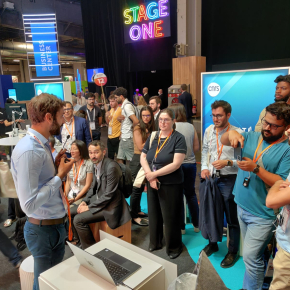
VivaTech: “The CNRS Plays a Key Role in Innovation”
The CNRS will be present from 14-17 June for the fourth consecutive year at VivaTech, Europe’s largest innovation gathering.
Over 1,800 exhibitors will be present from 14-17 June at VivaTech in Paris (Paris Expo Porte de Versailles). Four days in which over 90,000 visitors are expected to meet start-ups, tech leaders, major groups, public actors, and investors from across the globe. The CNRS will be present for the fourth consecutive year. “VivaTech is a major event that serves as a reminder of the CNRS’s key role in innovation,” indicates Jean-Luc Moullet, the Chief Innovation Officer of the CNRS.
The CNRS will offer talks and discussions regarding four major topics: quantum technology, sustainable development, health, and energy, all symbols of major scientific challenges. “We chose four topics that illustrate the challenges and issues faced by our society. These four topics will be led by ten start-ups (see text box) that grew out of research conducted in laboratories under CNRS supervisory authority,” Moullet adds.
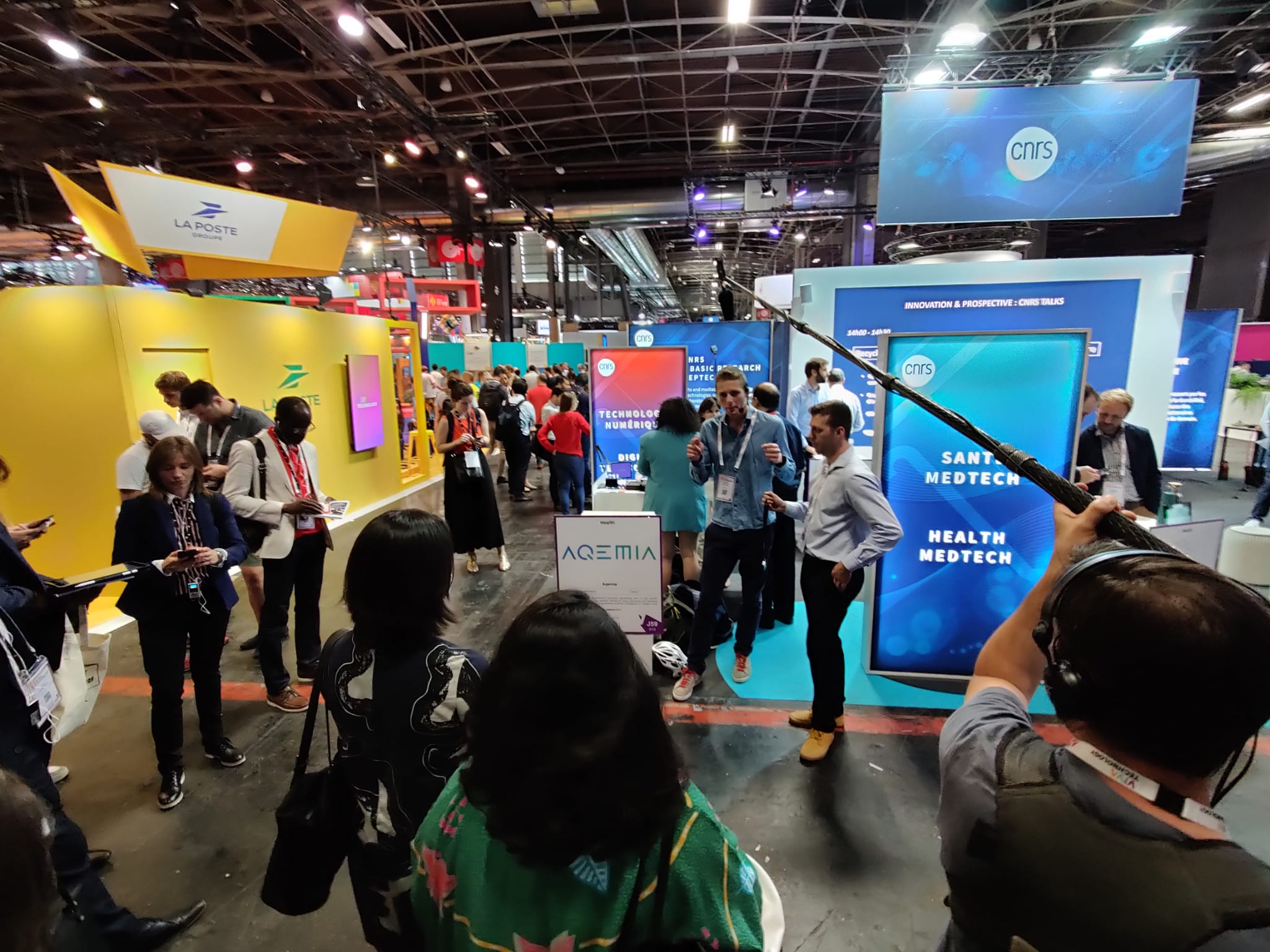
At the heart of industrial decarbonization
Among these 10 start-ups, the company Spark Cleantech aims to accelerate the decarbonization of industry by producing hydrogen directly on site, with zero CO2 emissions and very little electricity. The start-up is developing a decarbonized hydrogen production process1 that uses five times less electricity than electrolysis2 . “We hope to bring the first units to market in 2025, after an industrial pilot phase in 2024.VivaTech allows us to begin this phase by communicating about who we are and what we do,” emphasizes Patrick Peters, the co-founder and CEO of Spark. The young company has just started its industrialization phase after a first successful fundraising effort, and receiving BpiFrance’s 2022 iLab Grand Prize. “Our process can produce hydrogen economically, even for small capacities such as future hydrogen filling stations, and responds to industrial usage needs directly at the site of consumption, thereby avoiding constraints linked to the transport and storage of hydrogen, which can represent up to 70% of production costs,” explains Patrick Peters, whose company received support in 2022 from the CNRS’s RISE entrepreneurship support programme, and who will be present during a round-table discussion on new energy at VivaTech.
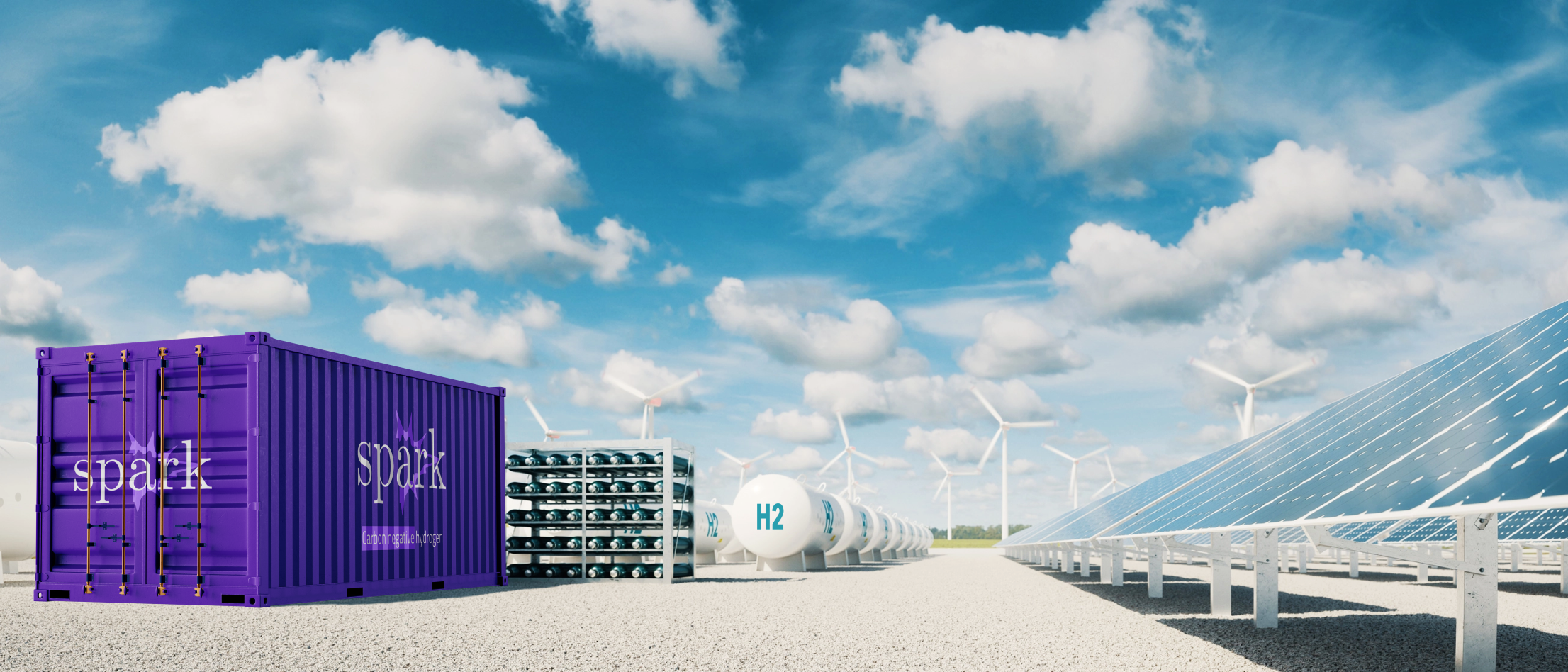
AI for new precision medicine
Also represented at the CNRS stand will be the start-up One Biosciences, which was created in 2020, and grew out of the research conducted by Dr. Céline Vallot, the winner of the 2022 CNRS Innovation Medal and a researcher at the Dynamics of Genetic Information: Fundamental Bases and Cancer Laboratory3 . “One Biosciences is at a strategic moment in its development. We are seeking to increase our visibility just as the company’s activity is intensifying, with the development of multiple biomedicines, and initial phases planned for 2024. VivaTech is a key moment for us, when we can present ourselves to investors, institutional actors, and potential business partners,” explains the company’s Managing Director, Magali Richard. One Biosciences aims to become a world leader in precision medicine for complex diseases by combining “single-cell” technologies and artificial intelligence in order to discover and develop new therapeutic approaches for precision medicine. “The start-up’s single-cell sequencing technologies4 provide access to an unprecedented trove of information for understanding the heterogeneity and dynamics of the complex biological systems responsible for pathological mechanisms,” points out Vallot. This innovation requires an extensive interdisciplinary effort involving molecular biology, robotics, data science, as well as medical and industrial expertise–all present within the One Biosciences team. “Our strength partly resides in this multidisciplinarity, which has helped develop a series of protocols, tools, and algorithms that give us a major competitive advantage. The next phase for the company will notably be to pursue this idea of innovation, with a view to constantly improving our ability to process and interpret data.”
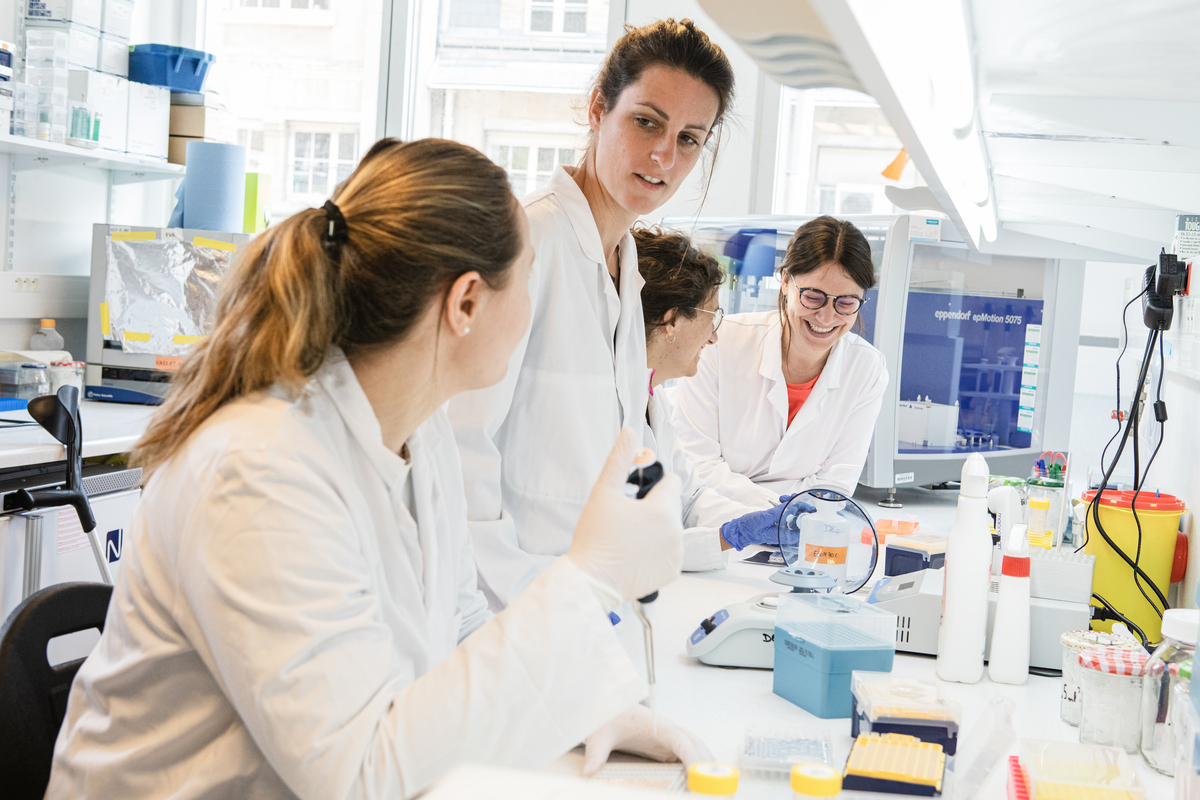
Alain Aspect, Winner of the 2022 Nobel Prize for Physics, among the CNRS’s Invitees
The CNRS has also organized a series of round-tables, talks, and discussions at its stand—“Innovation & Prospective Talks”—to be held from 14-16 June at VivaTech. The scientific topics that will be showcased include quantum technology, recyclability, the circular economy, and the decarbonization of industry. There will also be institutional subjects, such as market oriented support strategies, with Mehdi Gmar, the Director of CNRS Innovation, as speaker, as well as the launch of a new offer, dedicated to companies that grow out of laboratories under CNRS supervisory authority. “The CNRS has planned programming with a wealth of contributions in order to highlight the link between research and innovation. To this effect, we have invited major figures in research, as well as CEOs of start-ups and leaders of Priority Research Programmes and Equipments (PEPRs), major research programmes that are the upstream portion of national acceleration strategies, and that were developed as part of the France 2030 Plan,” Moullet explains.
The major research topics being pursued by the CNRS will be presented at the various round-tables, and will include the expertise of CNRS research staff, examples of public-private research, and representatives from start-ups that grew out of laboratories under CNRS supervisory authority. For instance, the organization will offer a talk on the topic of “Recyclability and the Circular Economy” with Jean-François Gérard, the leader of the Recyclability, Recycling, and Reincorporation of Recycled Materials PEPR, along with three cutting-edge start-ups in the field5 . Alain Aspect, the winner of the 2022 Nobel Prize for Physics, will open the discussions with remarks alongside Antoine Petit, the Chairman and CEO of the CNRS.
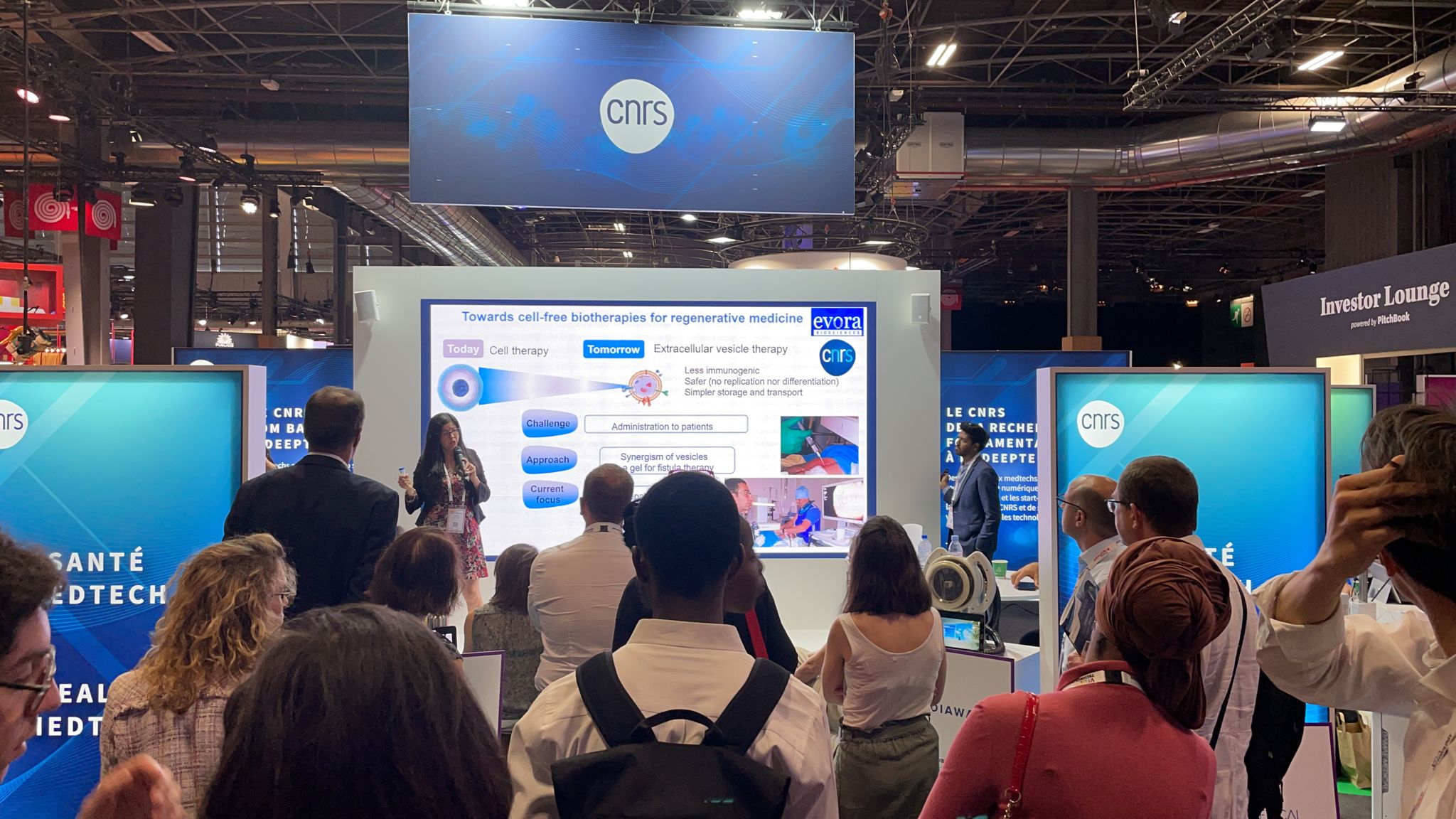
The CNRS and SATTs: Consolidating a Full-Fledged Professional Sector
The SATT Network of technology transfer companies, a major CNRS partner6 , will also be present at the organisation’s invitation. “We will present our support programmes for researchers and our offerings for companies and investors seeking innovative projects or start-ups,” explains Laurent Baly, the President of the SATT Network7 . Seven start-ups that emerged from this support network will be at his sides in connection with the four subjects being showcased. In addition to remarks from these start-ups, the SATT Network will present its vision of women’s entrepreneurship and market oriented support strategies for Deeptech technology, in addition to holding a pitch competition for 10 start-ups before a jury consisting of experts and potential investors. “The CNRS and the SATT Network are collaborating closely to promote technology transfer and the development of French public research. This collaboration has consolidated a full-fledged professional sector, and has strengthened France’s innovation and competitiveness on the international scene. We would like to emphasize this collaboration at VivaTech,” stresses Baly.
Vivatech 2023 promises to be a must-see gathering for discovering the major innovations that will shape the society of the future, in addition to key trends in research today.
Full schedule of our CNRS talks.
- 1Spark Cleantech uses a patented process for nanopulsed cold plasma—electrical arcs whose temperature is controlled—in order to extract the hydrogen in methane and produce carbon in solid and reusable form: the hydrogen produced is therefore free of CO2 emissions, including when the methane comes from the network (fossil gas), and becomes carbon negative if the methane is of biological origin.
- 2Process of exchange in which electrical energy is transformed into chemical energy.
- 3CNRS/Institut Curie/Sorbonne Université.
- 4Series of molecular biology techniques for analysing genetic information.
- 5The start-ups Recyc’Elit, Cilkoa, and VH93.
- 6The CNRS has been a shareholder of all SATTs since their creation in 2012.
- 7Created in 2012 to develop a professional technology transfer sector throughout France, SATTs provide companies with risk-free technological solutions with a high potential for enhancing competitiveness. Their expertise includes intellectual property, managing maturation projects, and establishing relations between academia, industrial partners, and investors.
Focus on the 10 start-ups at the CNRS stand
Ten start-ups will be presented at the CNRS stand at VivaTech:
- Cilkoa, created in 2022, is pursuing new avenues for manufacturing hybrid bio-based materials by combining expertise (in nanocellulose-based materials and ceramic materials), and then evaluating their functionalities. With its patented technology, the company replaces the plastics that usually protect the inside of cellulose packaging with an alumina film chemically grafted onto the fibres. Cilkoa’s solution promises a percentage of cellulose approaching 100%.
- Mablink Bioscience, created in 2018, is contributing to the fight against cancer thanks to an innovative technology that makes Antibody-Drug Conjugates (ADCs)—anticancer medicine that targets cancerous cells without affecting healthy ones—“stealthy,” and hence more effective and better tolerated.
- Exail Systèmes Quantiques, created in 2011, is a pioneering company in the field of quantum technologies. A transfer of know-how and the use of a CNRS-Observatoire de Paris-PSL patent helped it become the first company to bring to market an absolute quantum gravimeter for measuring the acceleration of gravity, with applications in the field of geophysics.
- One Biosciences, created in 2020, aims to become a world leader in precision medicine for complex diseases. It combines “single-cell” technologies and artificial intelligence to discover and develop new therapeutic approaches for precision medicine.
- Recyc’Elit, created in 2019, provides solutions in the field of recycling. The start-up has developed a process that can recycle all types of waste made of a plastic called PET, as well as single or mixed polyester textiles.
- Resolve Stroke, created in 2022, has conceived the first high-definition 3D digital ultrasound scanner. Its technology is the fruit of more than a decade of research in fundamental physics and ultrasound. It can “image” macro and micro-vessels in 3D within a few minutes, doing so safely for the patient, all while allowing its use by numerous health professionals.
- Siquance, created in 2022, uses the physical properties of silicon to produce quantum bits of excellent quality, as well as technological know-how in microelectronics to produce chips containing billions of transistors for everyday computers and smartphones. Combined, these two assets pave the way for universal quantum accelerators that, by 2030, will be faster and more precise than computers with very high computing power.
- Spark Cleantech, created in 2021, aims to accelerate the decarbonization of industry through the production of hydrogen directly on site, with zero CO2 emissions and very little electricity. The start-up is developing a decarbonized hydrogen production process that uses 5 times less electricity than electrolysis (process of exchange in which electric energy is transformed into chemical energy).
- VH Quatrevingtreize design water current turbines to convert the energy of moving water into electricity via patented technology and a 100% recyclable bio-based material, thereby enabling safe and predictable energy production.
- WelinQ, created in 2022, addresses the major challenge of scaling up quantum processors, which currently limits their computing capacity. The company is developing and bringing to market the world’s most effective solution for connecting quantum computers to one another, thereby drastically increasing their computing capacity.
Vivatech 2023: The Major Challenges of the Future at the CNRS Stand
To find out more about the CNRS at VivaTech, read the press release "Vivatech 2023: The Major Challenges of the Future at the CNRS Stand"
